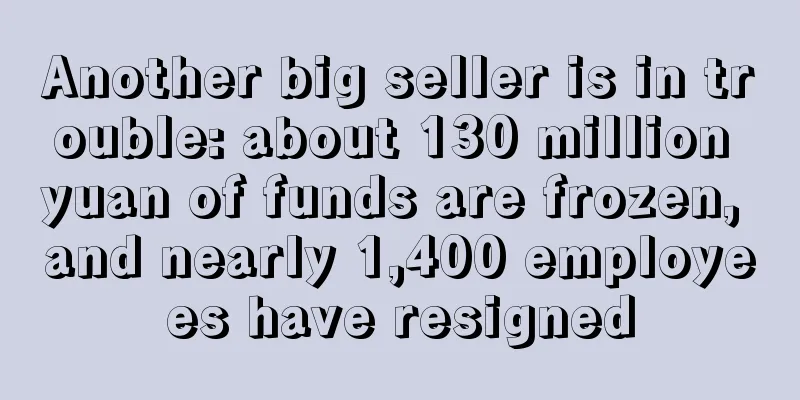Dare to manipulate reviews? Thousands of sellers exposed for giving “paid positive reviews”!

|
The past two years have been turbulent and unpredictable for the cross-border e-commerce industry. Against the backdrop of the COVID-19 pandemic, international import and export businesses have developed rapidly, with many companies taking advantage of the situation and making a breakthrough; however, many companies have also stumbled and are now deserted.
Many big sellers in the cross-border industry have had their accounts blocked one after another, which once caused many sellers to be trembling with fear. The reason for the account blocking is that the merchants took advantage of consumer psychology and added paid reviews to the product packaging, which violated the Amazon platform rules.
Sellers have many channels to request reviews, but platforms are racking their brains but have no idea what to do
The topic of fake reviews is nothing new in the e-commerce circle. Although in the domestic e-commerce market, people may have long been accustomed to it, because takeout and express delivery may contain review rebate cards.
However, Amazon has recently adopted a stern attitude and bold measures on this issue, carrying out drastic rectification of the platform. Many sellers have suffered heavy losses as a result and have become more disciplined in their behavior.
However, in an e-commerce environment where good reviews are the most important, the phenomenon of review requests is like a small grass that cannot be completely burned by wildfire. Just now, news broke that Twitter has become a disaster area for sellers to request reviews.
According to the latest investigation by Which?, a British consumer organization , thousands of Amazon sellers have been using Twitter to post "paid reviews" and as many as 130 brands have been involved . Prior to this, Which? had reported that Amazon sellers had asked buyers for five-star reviews through Facebook .
Those who participate in fake positive reviews on Twitter can be divided into two groups: sellers and reviewers. Most of these Amazon sellers are from China, India, Pakistan and the United States, and they recruit reviewers from Germany, France, Italy, Spain, the Netherlands, Sweden, Australia, Canada, Mexico, Russia and Japan on Twitter.
After these reviewers place an order for a product , the seller will first return half of the product price , and then return the other half and commission after they publish a five-star review with photos or videos . These products include beauty products , children's toys, clothing, earplugs, wigs, mobile phone cases, stationery and underwear.
Which? researchers posed as reviewers and posted a tweet on Twitter, saying they wanted to be Amazon product reviewers, and received 19 responses from sellers. During the entire investigation, Which? received a total of 53,065 paid positive reviews from 132 brands, including some Amazon's Choice products.
Under Amazon's iron fist, there are still sellers who "continue to do it" and choose to fake orders and reviews. It seems that the cat-and-mouse game between the platform and some sellers will continue.
Amazon first deletes sellers’ listings, then issues relevant compliance policies
For sellers who violate the platform rules, their behavior is like walking on a tightrope. But even those sellers who strictly abide by the platform rules cannot rest easy.
Amazon sellers are now always on edge, fearing that they might accidentally violate Amazon's rules and affect their business. Recently, a large number of sellers on the US site reported that Amazon quietly removed a large number of product links.
First, the seller "sell4more" posted on the Amazon official forum that Amazon seemed to have deleted nearly one million dietary supplement products, including some of his best-selling products on Amazon. And he had not received any notification that compliance documents were required for products in this category. Many sellers in the dietary supplement category followed up on the post saying that they had encountered the same thing .
It is reported that the reason why these products were removed from the shelves is that Amazon recently changed the requirements for selling dietary supplement products on the Amazon.com .
Amazon US released a new announcement on January 11. The announcement shows: "Compliance documents are required to sell dietary supplements in the United States. Starting January 10, 2022, we have modified the way you submit compliance documents for dietary supplements in US stores."
Dietary supplement sellers can visit the "Fix Your Product" page, view the ASINS and SKUs with a status of "Needing Approval", and then select "Request Approval". You can also submit documents by searching for the product in "Add Product" in the "Inventory" menu and selecting "Apply to Sell".
Many sellers are puzzled by Amazon's behavior of acting first and asking for permission later.
Seller A: The product link was directly deleted without prior notice, which resulted in customers being unable to purchase my products. The financial loss caused to me was quite large.
Seller B: We are all under fire now because of Amazon’s botched launch of this program, and it seems very difficult to upload and complete the compliance documents within the time limit specified by Amazon.
Seller C: Almost all of my dietary supplement products have been removed from the shelves, and I have sent compliance documents to Amazon many times, but Amazon keeps saying that I need to send compliance documents. These compliance checks don’t seem to be easy to pass.
Amazon strictly controls the compliance of dietary supplement products on its platform, which is supposed to be responsible to consumers, but this one-size-fits-all approach has indeed brought considerable negative impacts to sellers to a certain extent. Even some sellers who are not in this category have been "implicated".
Under the post published by "sell4more", some sellers said that their products were removed from Amazon simply because the titles contained words related to supplements.
Seller "Texas_Exile_Books" said: "Amazon's robot system seems to be out of control again! In recent days, Amazon's system has mistakenly associated many products with the nutritional supplement category. We have at least a dozen non-supplement products removed from the shelves, probably because the words such as poison, diet, and health in the product titles were misjudged by Amazon 's system . "
In short, sellers in this category must conduct self-inspections in a timely manner and upload relevant compliance documents in accordance with Amazon’s requirements to avoid affecting their subsequent operations.
Although some sellers are indeed dissatisfied with some of Amazon's actions, no matter what, "people are under the eaves" and if they want to operate on Amazon, they still have to act according to the platform's rules. When facing problems, finding solutions in a timely manner is the most important thing.
If sellers want to continue to operate in the long term, they must abide by Amazon's rules and must not cross the red line of the platform. A series of cases have proved that taking shortcuts may win temporarily, but if you walk by the river often, you will get your feet wet.
In addition, sellers should pay more attention and keep abreast of the platform's relevant rules and latest policies to avoid touching the platform's "minefields" without knowing it . If some sellers violate the rules knowingly, but if they are punished because they do not understand the platform rules and violate them unintentionally, then they will be in tears. If they are punished because of the platform's misjudgment, they should understand the reasons in time and find corresponding solutions. Amazon Comment Removed |
>>: 2022 Streetwear Trends: Preppy Retro and Outdoor Styles to Watch
Recommend
What is Faxin Notary Cloud (Xiamen) Technology Co., Ltd.? Faxin Notary Cloud (Xiamen) Technology Co., Ltd. Review, Features
The online notarization platform of Faxin Notariz...
What is Americanas.com? Americanas.com Review, Features
Americanas.com is a well-known e-commerce website ...
What is Sellerboard? Sellerboard Review, Features
Sellerboard is a German startup that creates a pro...
1 million products sold! Two top sellers’ funds were frozen
The two largest Amazon sellers of the same brand ...
Vietnam's online retail market is expected to reach US$39 billion, with these categories attracting the most attention from consumers
According to the report, the scale of online reta...
Nearly 43,000 tables recalled, Costco furniture in Canada poses hidden dangers
At present, countries have stepped up their contr...
What is Amazon Influencer Program? Amazon Influencer Program Review, Features
Amazon Influencer Program is a social fan marketi...
Etsy's fourth-quarter earnings are good, and its stock price soars
According to CNBC, Etsy platform released its fou...
Reinvesting in South China! The headquarters of the company with a sales volume of 1.5 billion has started construction
Buying land, building headquarters, and mergers a...
AliExpress opens its third offline store in Spain in Barcelona
On the morning of July 3rd local time , AliExpres...
Amazon’s inventory capacity skyrocketed during the Spring Festival, with some sellers expanding their capacity by 80,000 at once!
Today is the second day of the Lunar New Year. Ma...
What is Costco? Costco Review, Features
Costco (full name Costco Wholesale Corporation) wa...
Latin American e-commerce platform Nuvemshop's annual sales reach US$700 million
During the COVID-19 pandemic, Latin American e-co...
Second wave of epidemic hits many countries in the Middle East, and spending on remote learning supplies rises
Affected by the spread of the mutated new coronav...
What is pscl? pscl Review, Features
pscl is a professional plastic strapping company s...









